“Regenerative economies that reciprocate the gift are the only path forward. To replenish the possibility of mutual flourishing, for birds and berries and people, we need an economy that shares the gifts of the Earth, following the lead of our oldest teachers, the plants…”
🌿 Robin Wall Kimmerer, The Serviceberry
Recommend Summer Beach Reading
I am not much of a trendy book reader, but there is one book that has been on my must-read list in the past few months that has also found its way to the top of the stack at the New York Times, Washington Post, and Amazon. It was also named a “Best Book of the Year” by Scientific American, Forbes, and Library Journal.
“A moving meditation on what a giving tree can teach us about building a fairer society… A compelling argument for a more ethical economy.” —TIME
Best of all, this goodness is packed into a very small, beach-read sized package.
“A small book with a profound impact.” —Angeline Boulley, Good Morning America
The book is: The Serviceberry: Abundance and Reciprocity in the Natural World by Robin Wall Kimmerer and it is published by Simon & Schuster.
“(Plants) invite us all into the circle to give our human gifts in return for all we are given.
How will we answer?”
🌿 Robin Wall Kimmerer, The Serviceberry
Join me for a deeper look at this powerful little book…
I wrote some reflections on Kimmerer’s first best-selling book, Braiding Sweetgrass, last summer:
Three pairs of ideas struck me in The Serviceberry:
Reciprocity & Gift Economies
Cooperation & Diversity
Relationships & Growth

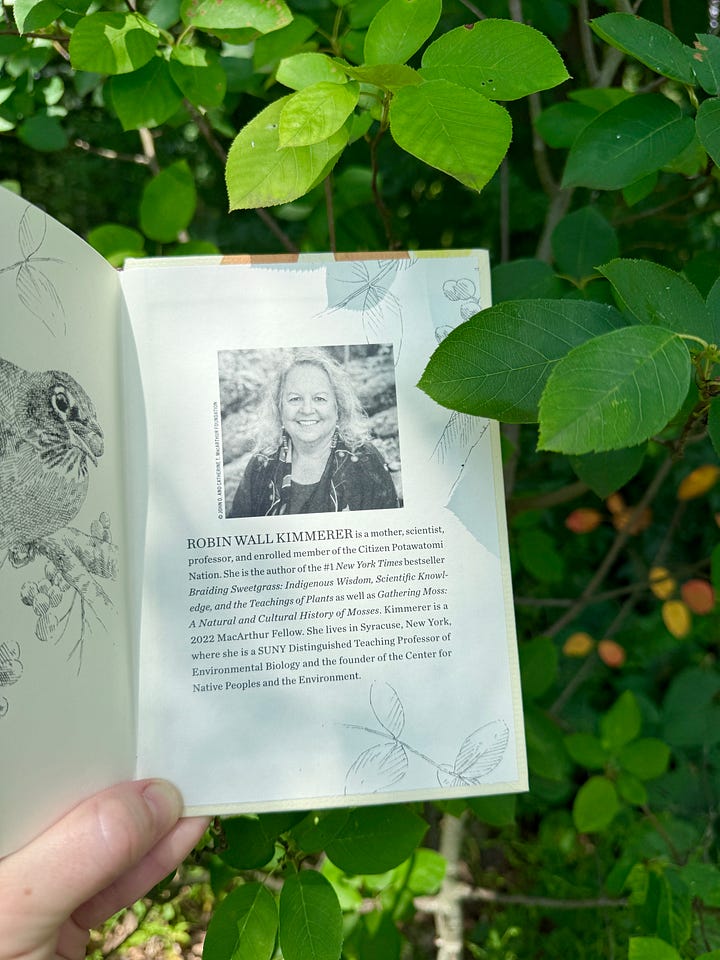
Reciprocity & Gift Economies
Gardeners who have been doing it long enough to grow a few plants well will relate to the way that Kimmerer speaks about the generous nature of plants, and they way they give to us in a way that motivates us to give back. She describes how this generous nature can be a part of healthy relationships of all sorts—human and monetary as well:
“When I speak about reciprocity as a relationship, let me be clear. I don't mean a bilateral exchange… I mean keeping the gift in motion in a way that is open and diffuse, so that the gift does not accumulate and stagnate, but keeps moving…”
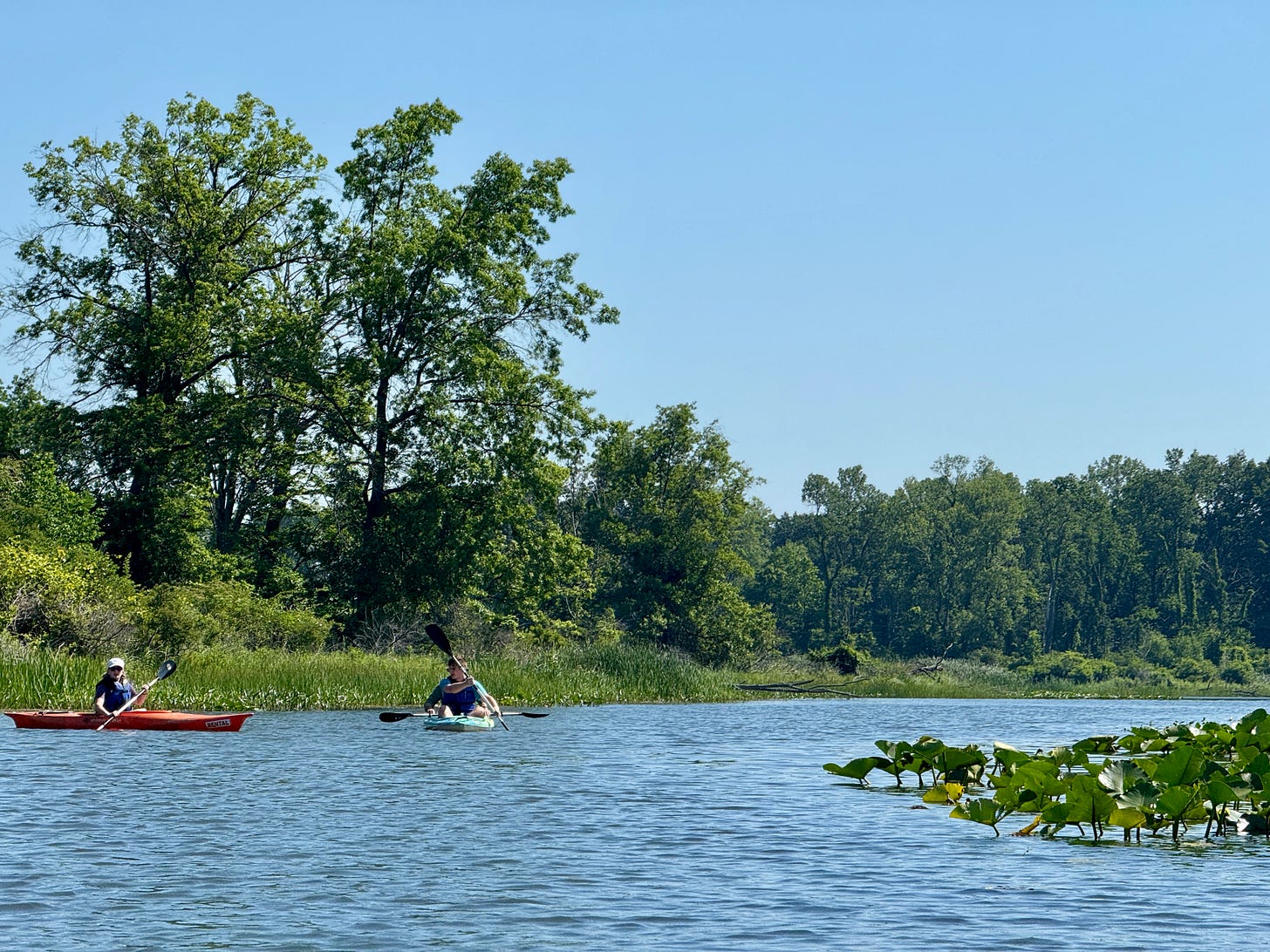
Cooperation & Diversity
Robin Wall Kimmerer offers a wonderful new definition of biodiversity in her short book. Her definition, influenced by the emerging eco science of today, emphasizes the cooperation of species who have become more diverse from each other in order to co-exist.
This new definition stood out to me as something new she had to say since Braiding Sweetgrass:
“There is no question that all living beings experience some level of scarcity at various points, and therefore that competition for limited resources, like light or water or soil nitrogen, will occur. But since competition reduces the carrying capacity for all concerned, natural selection favors those who can avoid competition. Oftentimes this avoidance is achieved by shifting one's needs away from whatever is in short supply, as though evolution were suggesting "If there's not enough of what you want, then want something else." This specialization to avoid scarcity has led to a dazzling array of biodiversity, each species avoiding competition by being different. Diversity in ways of being is an antidote.”
Relationships & Growth
With the current turbulence in the world, it was good to read a passage about our ability as humans to overcome the challenges we face. Kimmerer quotes another author who seems to speak right to my own heart about the insecurities we face collectively:
“In Sacred Economics, Charles Eisenstein reflects on the economy of ecosystems:
"In nature, headlong growth and all-out competition are features of immature ecosystems, followed by complex interdependency, symbiosis, cooperation, and the cycling of resources. The next stage of human economy will parallel what we are beginning to understand about nature. It will call forth the gifts of each of us; it will emphasize cooperation over competition; it will encourage circulation over hoarding; and it will be cyclical, not linear. Money may not disappear anytime soon, but it will serve a diminished role even as it takes on more of the properties of the gift. The economy will shrink, and our lives will grow."
I bet you could finish this little book before sunset…
One of my favorite quotes, which makes me feel so thankful that we were able to open our garden for our local library this summer:
“How does this sharing work in a larger community? Public libraries seem to me a powerful example of the way that gift economies can coexist with market economies, at a larger scale. Yes, there are privately owned bookstores in the city, which often become meaningful community spaces. I love bookstores for many reasons, but revere both the idea and the practice of public libraries…”
🌿 Robin Wall Kimmerer, The Serviceberry

Find Kimmerer’s new best-seller at your local book store (my favorite is Pressed Books & Coffee) or get it on Amazon: The Serviceberry: Abundance and Reciprocity in the Natural World by Robin Wall Kimmerer
Have you read The Serviceberry yet? Love to hear!
Related posts:
*Amazon Affiliate links are included in this newsletter. I make a few cents per recommendation, each of which I hope will be helpful to you! Note: I also include many links in my newsletter which are not affiliates to other sites for research and photo credit purposes.





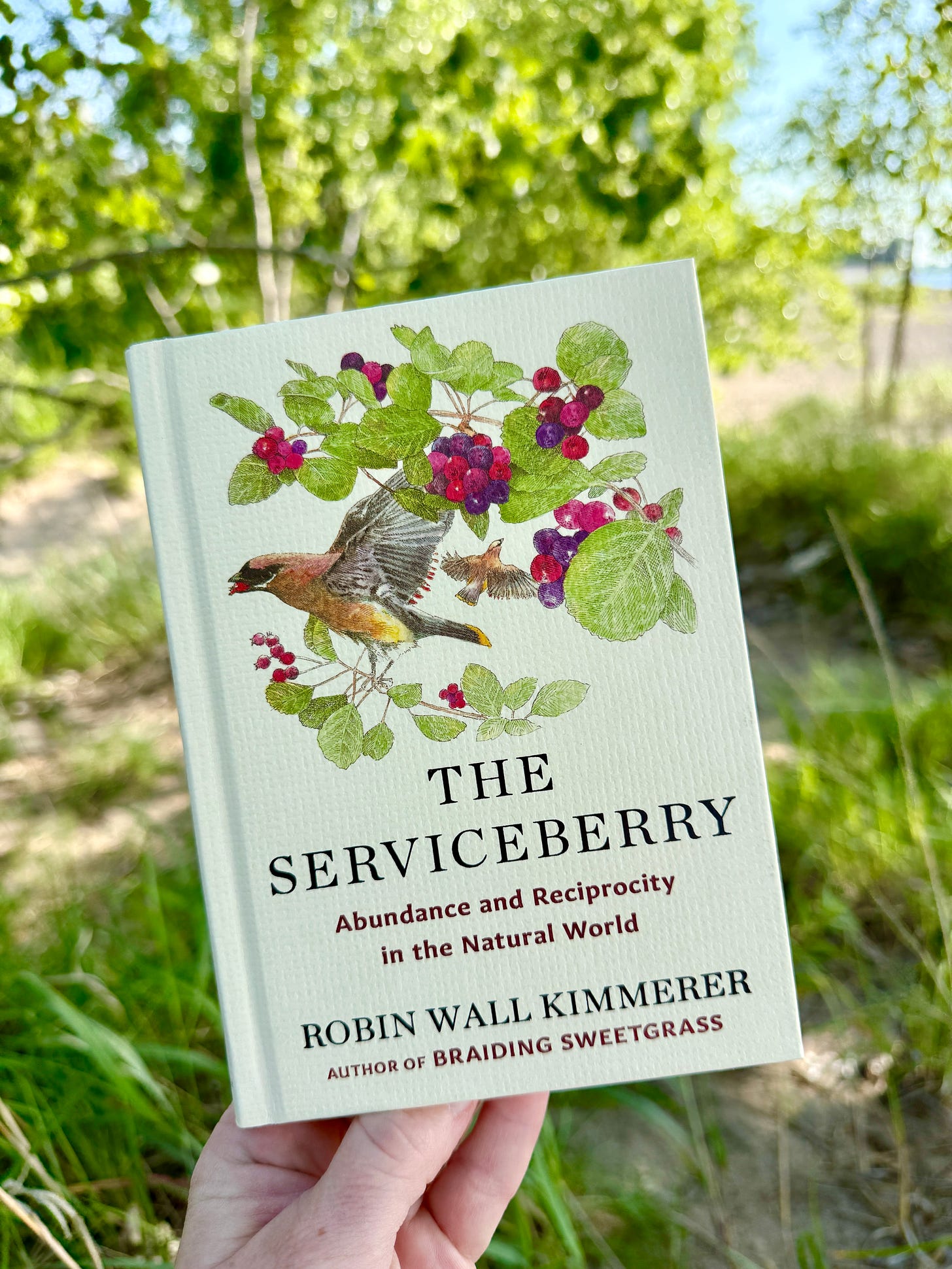

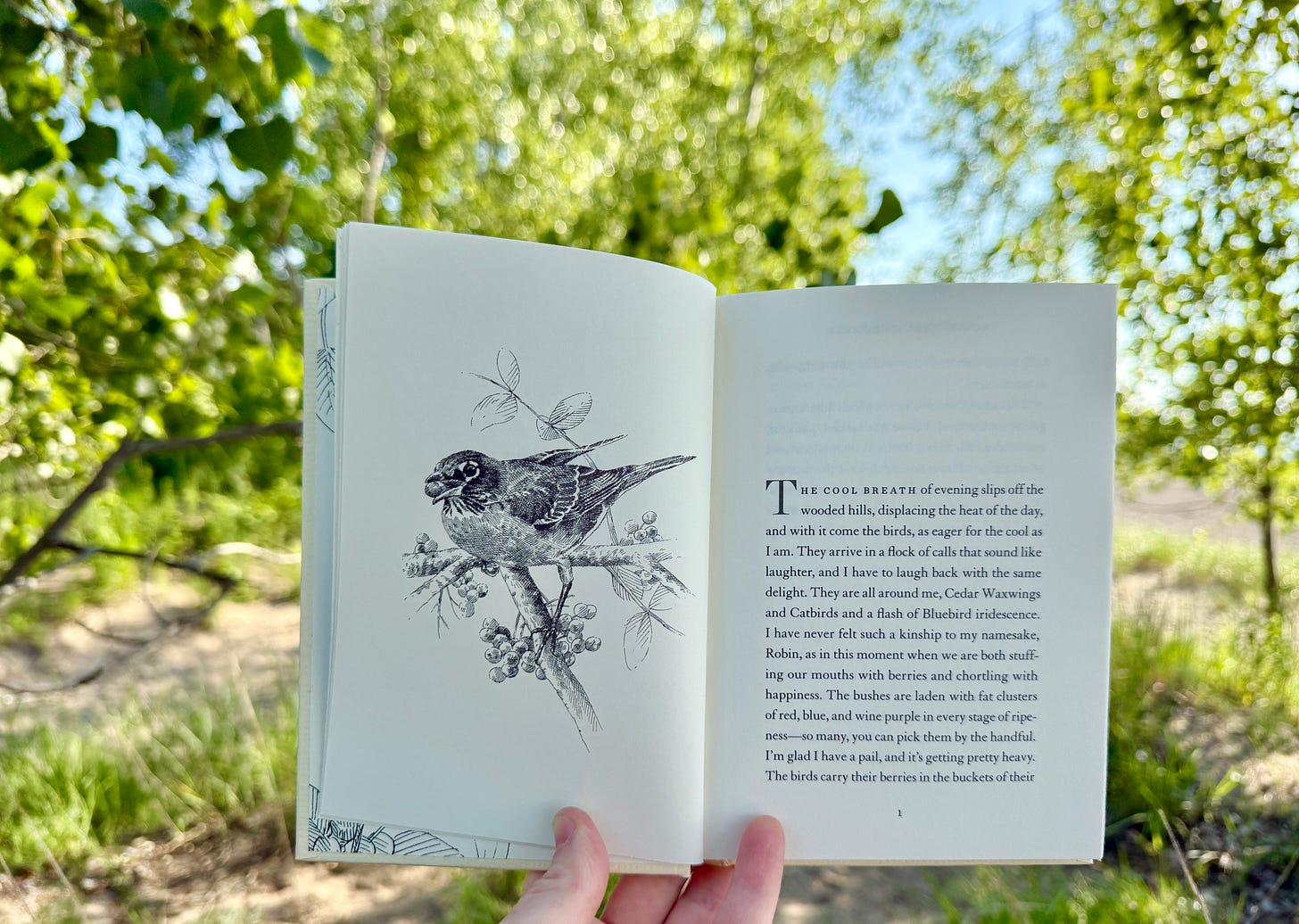



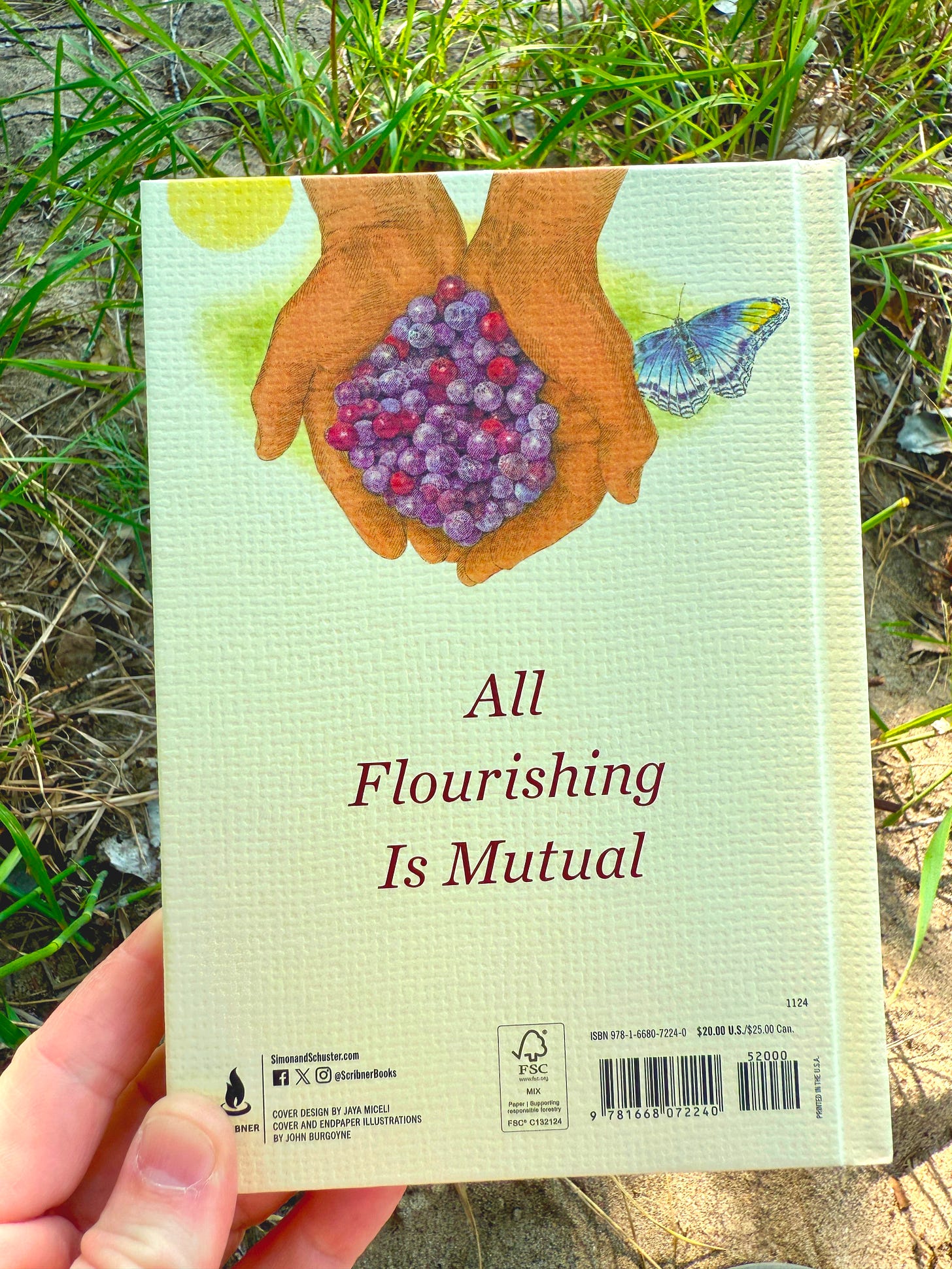


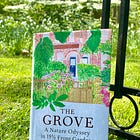



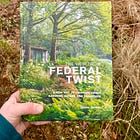

This one is on my list! I loved Braiding Sweetgrass. Thanks for the added motivation to move it closer to the top of the stack!
I've been wondering about this book. Thank you for sharing your thoughts!